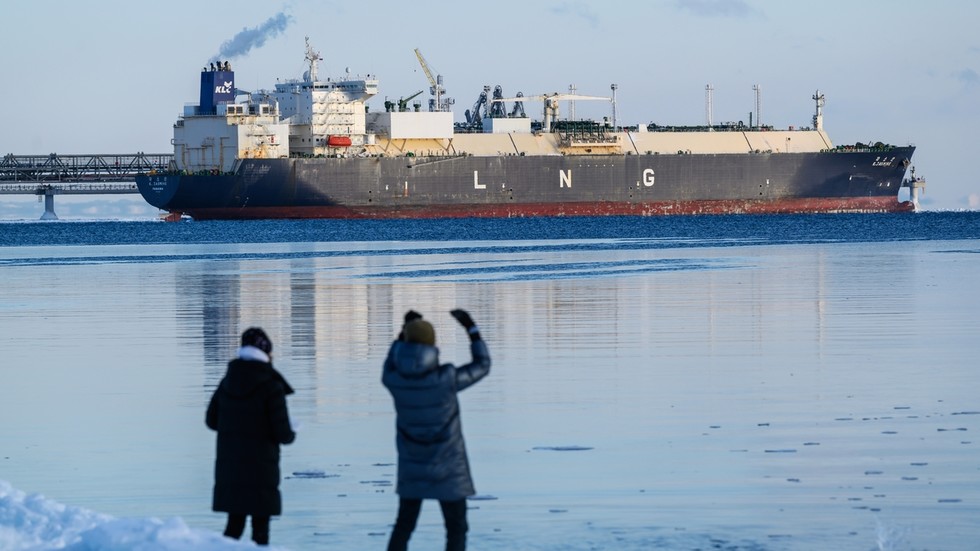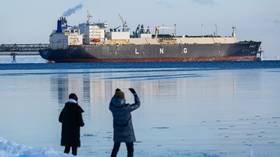
Tokyo wants to keep its investment in Sakhalin oil and gas projects to ensure its energy security, Fumio Kishida has said

The tanker K.Jasmine is seen at the loading terminal for a liquefied natural gas (LNG) production plant in the village of Prigorodnoye, Sakhalin Region, Russia. © Sputnik/Sergei Krasnouhov
Japanese companies will continue to participate in Russian energy projects on Sakhalin Island due to their importance for Tokyo’s energy security, Prime Minister Fumio Kishida announced at a meeting of the upper house of parliament on Monday.
Kishida told lawmakers that last year Tokyo managed to cut reliance on Russia’s energy resources by slashing oil imports by 90% and coal by 60%. Japan, which currently chairs the Group of Seven industrialized nations, remains in “close cooperation with the countries of the G7 and the world community” on the issue of energy supply, the prime minister said.
At the same time, the Japanese government expects demand for liquefied natural gas (LNG) to grow. “Therefore, in what concerns projects on Sakhalin, they are important for ensuring energy security in our country,” Kishida argued, explaining that the country will keep its stake in the new operator of the Sakhalin-1 oil and gas project.
READ MORE: Germany now addicted to US LNG – German MP
Japan’s Sakhalin Oil and Gas Development Co (SODECO) owns a 30% stake in the Russian Far Eastern offshore project.
Last year, the Russian government allowed SODECO to keep its stake under the new domestic operator of Sakhalin-1 following the exit of ExxonMobil, the previous operator and formerly also owner of a 30% stake.
Exxon Neftegaz was disbanded as the operator of the project and all its assets and equipment were transferred to a new company managed by Rosneft subsidiary Sakhalinmorneftegaz-Shelf.
Japan is the world’s top LNG importer and a major natural gas and oil consumer. According to S&P, Tokyo became 95% dependent on imports of Middle Eastern crude after it weaned itself off Russian oil in lockstep with its Western allies.
For more stories on economy & finance visit RT’s business section




